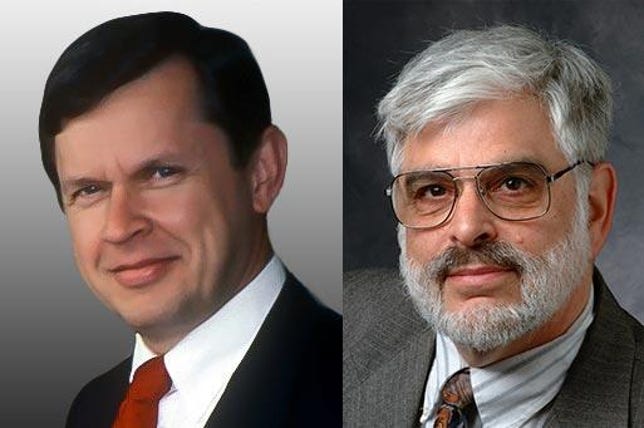
The A.M. Turing Award is the top prize in the computer science field.
Association for Computing Machinery; Screenshot by Stephen Shankland/CNET
Without a crucial software development tool called the compiler, we’d have to descend into the incomprehensible world of machine-code mutterings before we could control computers. Which is why two researchers who helped develop the compiler, Alfred Aho and Jeffrey Ullman, just won the prestigious 2020 A.M. Turing Award.
The collaboration between Ullman and Aho that pioneered compiler technology began in 1967 at Bell Labs, AT&T’s storied research center, according to the Association for Computing Machinery. The professional organization selects recipients for the A.M. Turing Award and its $1 million cash prize.
The award, named for British computing pioneer Alan Turing, gives plaudits to computer science giants. Previous recipients are researchers instrumental to creating today’s artificial intelligence technology, the reduced instruction set computing chip (RISC) design now in all smartphones, the World Wide Web, data encryption and the computer graphics that made Toy Story and modern animation possible.

Alfred Aho, left, and Jeffrey Ullman, winners of the 2020 A.M. Turing Award
Columbia University, Stanford University
Ullman is now a professor emeritus at Stanford University and chief executive of computer science e-learning company Gradiance. Aho is professor emeritus at Columbia University.
Today’s computers are programmed with high-level languages that are relatively comprehensible to humans, with a range of data types and elaborate commands. It’s the job of a compiler to turn those language instructions into the machine code that a processor actually understands. That low-level code includes operations like fetching a number from a memory slot and adding its value to the number stored in another memory slot. Beyond the most basic operations, it’s hard for humans to write or follow.
Aho and Ullman helped figure out compiler technology that translates high-level programs into low-level machine code.
They also were instrumental in developing software algorithms, the recipes computers can follow for repeated tasks like sorting a jumble of data into an ordered list. And they documented their work in influential books like the “dragon books” on compiler design.
“Their textbooks have been the gold standard for training students, researchers, and practitioners,” said Jeff Dean, senior vice president at Google AI, in a statement. Google funds the award’s prize money.


